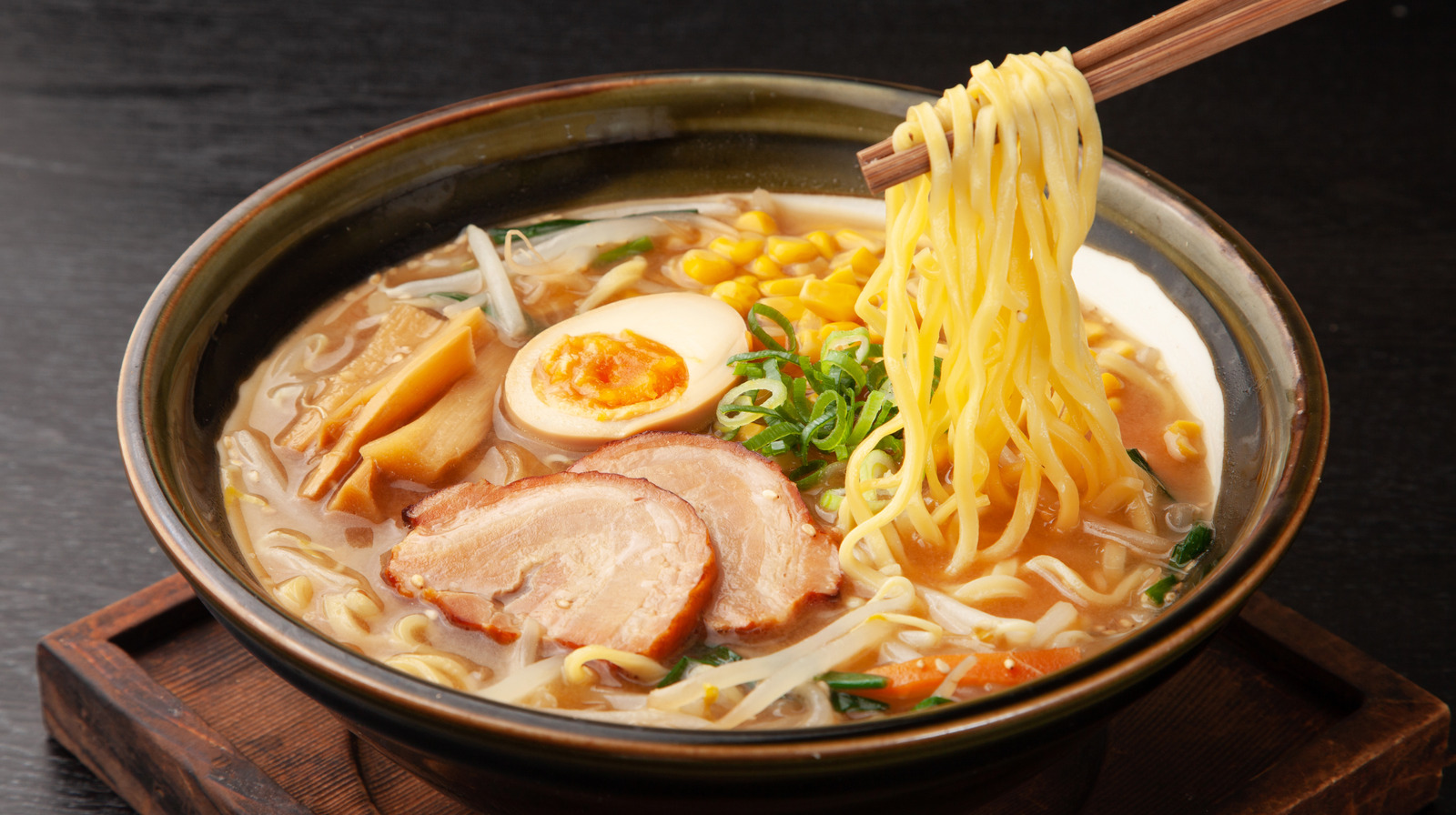Is your quick and easy meal shortening your life? The seemingly harmless bowl of ramen noodles might be more dangerous than you think, with a surprising number of fatalities linked to its consumption.
Ramen noodles, a staple in many households due to their affordability and convenience, have been implicated in a series of alarming health incidents, some tragically resulting in death. While these instant noodles offer a quick fix for hunger, a growing body of evidence suggests that regular consumption can pose significant health risks. In 2014, the death of a 20-year-old college student brought this issue to the forefront. The student, a frequent consumer of ramen noodles, succumbed to sodium overload after consistently consuming the product for several weeks. This case underscored the potential dangers of excessive sodium intake from this seemingly innocuous food.
Adding to the concern, in 2015, a 52-year-old man suffered a fatal allergic reaction to the high levels of Monosodium Glutamate (MSG) present in a package of ramen noodles. Having consumed ramen noodles regularly for several years, his unfortunate demise highlighted the risks associated with MSG sensitivity, a concern for many consumers. These incidents, though tragic, are not isolated. They represent a growing number of cases where ramen noodle consumption has been directly linked to severe health consequences, urging a closer examination of the potential dangers lurking within this popular meal.
- Guaranteed Pharma Revolutionizing Healthcare With Trust And Transparency
- Brooke Bender The Untold Story Of A Digital Phenomenon
| Ramen Noodle Health Risk Information | |
|---|---|
| Category | Details |
| Common Name | Instant Ramen Noodles |
| Primary Risk Factors | High Sodium Content, MSG Sensitivity, Calorie Density |
| First Documented Case (Sodium Overload) | 2014 (20-year-old college student) |
| First Documented Case (MSG Allergy) | 2015 (52-year-old man) |
| Potential Health Risks | Hypertension, Heart Failure, Allergic Reactions (Anaphylaxis), Obesity, Nutrient Deficiencies |
| Recommended Action | Moderate Consumption, Choose Low-Sodium Options, Read Labels Carefully, Consult a Doctor if Concerned |
| External Resources | U.S. Food and Drug Administration (FDA) |
While ramen noodles provide a readily available and budget-friendly meal option, it's essential to approach their consumption with caution. Awareness of the potential health risks is paramount, enabling informed decisions regarding dietary choices. For those concerned about the potential impact of ramen noodles on their health, consulting a healthcare professional is a prudent step. Medical experts can provide personalized advice, taking into account individual health conditions and dietary needs.
Ramen noodles have infiltrated the culinary landscape as a ubiquitous and economical food choice. However, the reported fatalities associated with their consumption demand a critical evaluation of the risks involved. Vigilance and moderation are key when incorporating ramen noodles into your diet.
The increasing incidence of health problems related to ramen consumption underscores the urgent need for public awareness and responsible dietary habits. By understanding the potential risks and taking appropriate precautions, individuals can mitigate the negative impacts associated with this popular food.
- Mansion Nail Lounge Photos Where Luxury Meets Nail Art
- Why Velvet Lv Fabric Is A Gamechanger In The Fashion World
In light of these concerns, it's crucial to delve deeper into the specific health hazards linked to ramen noodles, including sodium overload, MSG allergies, and other associated risks. By examining each of these factors, we can gain a comprehensive understanding of the potential consequences of regular ramen consumption.
- Sodium overload: Ramen noodles are notorious for their high sodium content, which can lead to a range of health problems, including sodium overload. Excessive sodium intake can trigger water retention, elevate blood pressure, and even precipitate heart failure.
- MSG allergy: MSG, a common flavor enhancer in ramen noodles, can cause allergic reactions in sensitive individuals. These reactions can manifest as headaches, nausea, and breathing difficulties, underscoring the importance of being aware of MSG intolerance.
- Other health risks: Beyond sodium and MSG, ramen noodles are packed with calories, fat, and carbohydrates. Overconsumption can contribute to weight gain, obesity, and a host of related health issues, highlighting the need for balanced dietary choices.
If you harbor concerns about the potential health risks of ramen noodles, seeking guidance from a healthcare provider is advisable. Doctors can offer tailored recommendations and help you make informed decisions about your dietary habits. Consider reducing your ramen intake or exploring alternative meal options to minimize potential health risks.
Sodium overload, a condition triggered by excessive sodium consumption, poses a serious threat to overall health. It can lead to a cascade of complications, including high blood pressure, heart failure, and stroke. Ramen noodles, laden with sodium, can significantly contribute to sodium overload, making it crucial to monitor intake. In severe cases, sodium overload can prove fatal, underscoring the severity of this risk.
Several documented cases have highlighted the dangers of ramen-induced sodium overload. In 2014, the tragic death of a 20-year-old college student was attributed to consuming ramen noodles with excessively high sodium levels. This student, a regular ramen consumer, succumbed to the consequences of sodium overload after weeks of consistent intake.
Similarly, in 2015, a 52-year-old man experienced a fatal allergic reaction to the elevated MSG content in ramen noodles. His years of ramen consumption culminated in a tragic outcome, emphasizing the potential for severe consequences associated with MSG sensitivity.
These cases, while disturbing, underscore the importance of recognizing the risks associated with ramen noodles. While they offer convenience and affordability, consumers must exercise caution and make informed decisions about their dietary choices. Consulting a healthcare professional can provide valuable guidance and address any concerns about the health implications of ramen consumption.
MSG, or monosodium glutamate, serves as a flavor enhancer commonly added to ramen noodles. However, it can trigger allergic reactions in susceptible individuals, resulting in a range of symptoms, from headaches and nausea to breathing difficulties. In extreme instances, MSG allergies can be life-threatening.
- Anaphylaxis: This severe allergic reaction, triggered by MSG, can lead to breathing difficulties, throat and tongue swelling, and a sudden drop in blood pressure. Anaphylaxis requires immediate medical attention, as it can be fatal if left untreated.
- Asthma: MSG can exacerbate asthma symptoms in allergic individuals, causing wheezing, coughing, and shortness of breath. Asthmatics should exercise caution when consuming ramen noodles containing MSG.
- Other health problems: Headaches, nausea, and fatigue are among the less severe but still uncomfortable symptoms associated with MSG sensitivity. These symptoms can significantly impact an individual's quality of life.
If you suspect an MSG allergy, consulting a doctor for testing is essential. Confirmation of an allergy necessitates avoiding ramen noodles and other MSG-containing foods to prevent adverse reactions. Being proactive about identifying and managing MSG sensitivity can safeguard your health and well-being.
Beyond the immediate dangers of sodium overload and MSG allergies, excessive ramen consumption can contribute to a range of long-term health problems, including weight gain, obesity, and heart disease. Ramen noodles, characterized by their high calorie, fat, and carbohydrate content, often lack essential nutrients. This nutritional imbalance can lead to weight gain and obesity, increasing the risk of heart disease, stroke, and other related conditions.
A study featured in the journal Nutrition and Metabolism revealed a correlation between regular ramen consumption and an increased likelihood of being overweight or obese. The study also indicated that frequent ramen eaters were more prone to elevated blood pressure and cholesterol levels, both significant risk factors for heart disease. These findings underscore the potential long-term health consequences of incorporating ramen noodles too often into one's diet.
Another study, published in Appetite, found that individuals who regularly consumed ramen noodles tended to have a higher intake of calories, fat, and carbohydrates compared to those who did not. Furthermore, ramen eaters were found to have a lower consumption of fruits, vegetables, and whole grains, suggesting a potential risk of nutrient deficiencies. This highlights the importance of diversifying one's diet and not relying heavily on ramen noodles as a primary food source.
The cumulative evidence suggests that excessive ramen consumption can contribute to weight gain, obesity, and a host of related health problems. It's crucial to acknowledge these risks and exercise moderation when including ramen noodles in your diet. By making informed choices and prioritizing balanced nutrition, you can mitigate the potential negative impacts of this popular food.
Ramen noodles are a widely consumed and affordable food, yet their connection to several reported fatalities necessitates a careful assessment of the associated risks. Awareness of these risks is paramount, particularly for those who frequently consume ramen noodles.
_Question 1:_ What are the risks of eating ramen noodles?
Answer: Ramen noodles pose several health risks, including sodium overload, MSG allergy, and other problems like weight gain, obesity, and heart disease. These risks stem from the high sodium, MSG, calorie, and fat content found in many ramen products.
_Question 2:_ Who is most at risk of dying from ramen noodles?
Answer: Regular ramen consumers are at the greatest risk. This includes individuals who rely on ramen as a primary meal or frequent snack, increasing their exposure to harmful levels of sodium, MSG, and other unhealthy components.
_Question 3:_ What are the symptoms of sodium overload?
Answer: Sodium overload can manifest as water retention, leading to swelling and discomfort. It can also cause elevated blood pressure, straining the cardiovascular system. In severe cases, sodium overload can trigger heart failure, a life-threatening condition.
_Question 4:_ What are the symptoms of an MSG allergy?
Answer: MSG allergies can cause a range of symptoms, including headaches, nausea, and breathing difficulties. In extreme cases, MSG allergies can lead to anaphylaxis, a severe and potentially fatal allergic reaction.
_Question 5:_ What are the other health risks of eating ramen noodles?
Answer: Beyond sodium and MSG, ramen noodles can contribute to weight gain, obesity, and heart disease. Their high calorie, fat, and carbohydrate content, combined with a lack of essential nutrients, can disrupt metabolic balance and increase the risk of chronic diseases.
_Question 6:_ How can I reduce the risks of eating ramen noodles?
Answer: Limiting your ramen intake is a crucial step. Opt for healthier alternatives, such as ramen noodles made with whole wheat noodles and low-sodium broth. Reading nutrition labels carefully can help you make informed choices and minimize your exposure to harmful ingredients.
Summary: Ramen noodles offer convenience and affordability, but awareness of their potential health risks is essential. By understanding these risks and taking appropriate precautions, you can minimize the negative impact on your well-being. Consulting a doctor can provide personalized guidance and address any specific concerns.
Transition to the next article section:
- Runway Gardens Your Ultimate Guide To Stunning Landscapes And Design Ideas
- Neon Cowboy Seltzer Your Sparkling Gateway To The Wild West Of Beverages


